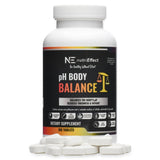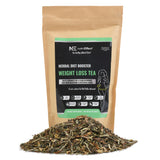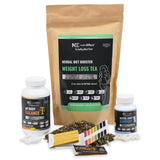As we age, maintaining joint health becomes increasingly important for staying active, mobile, and independent. Joint issues can lead to pain, stiffness, and decreased quality of life, but with the right approach, you can keep your joints healthy and functional well into your golden years. Here are some effective strategies to help you maintain joint health as you age.
Stay Active with Regular Exercise

Regular physical activity is crucial for joint health, as it helps strengthen the muscles around your joints and reduce stiffness. Aim for a combination of aerobic exercises, such as walking, swimming, and cycling, to enhance cardiovascular health and maintain joint mobility. Strength training is essential for building muscle strength, which supports your joints and reduces strain, so focus on exercises targeting major muscle groups. Flexibility and balance exercises, like yoga and tai chi, improve flexibility, balance, and coordination, reducing the risk of falls and joint problems.
Eat a Joint-Friendly Diet

A nutritious diet is crucial for joint health. To reduce inflammation, focus on anti-inflammatory foods rich in omega-3 fatty acids, such as walnuts, and flaxseeds. Ensure you get enough calcium and vitamin D, essential for bone health, from dairy products, leafy greens, and fortified foods. Sun exposure and supplements can help meet your vitamin D needs. Additionally, antioxidant-rich fruits and vegetables, particularly berries, oranges, and spinach, combat oxidative stress and support joint health.
Protect Your Joints

Taking steps to protect your joints can prevent injuries and wear and tear. Use proper techniques when lifting or carrying objects to avoid straining your joints. Wear supportive shoes that provide good cushioning to reduce joint stress, especially if you spend a lot of time on your feet. Additionally, braces or joint supports can help stabilize your joints during activities that put them at risk.
Stay Hydrated

Adequate hydration is crucial for maintaining joint health, as drinking plenty of water keeps the cartilage that cushions your joints lubricated, reducing pain and stiffness. While rest is essential, avoid prolonged inactivity, leading to joint stiffness and weakness; take regular breaks to move and stretch. Managing stress is also vital, as chronic stress can contribute to inflammation and joint pain. Incorporate stress management techniques like deep breathing, meditation, or engaging in enjoyable hobbies to support joint health. Finally, don’t ignore joint pain; seek early intervention from a healthcare professional to address the issue and prevent minor problems from escalating.
Maintaining joint health as you age requires a proactive approach that includes regular exercise, a healthy diet, weight management, and proper joint protection. By incorporating these strategies into your daily routine, you can keep your joints strong and flexible, allowing you to enjoy an active and fulfilling life. Always consult a healthcare professional before starting any new exercise or dietary program to ensure it is appropriate for your needs.
Website:
https://nutri-effect.com/
Date Written:
August 15, 2024








